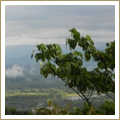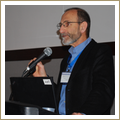 |
View this newsletter in your browser. |
 |
| Program Updates | |
| Research Highlights | |
| People Spotlights | |
| In the News |
| Calendar of Upcoming Events | |
| Mar. 26-28 |
Natural Capital Project Annual Meeting and Training at Stanford |
| Learn more about this program's use of open-source software to incorporate the value of nature in decision making. » Read more ... |
|
| Mar. 31 |
Energy Seminar |
| "Solid State Energy Storage: Game-Changing Technology for the 21st Century" Ann Marie Sastry, President and CEO, Sakti3, Inc. » Read more ... |
|
| Apr. 2 |
Book Talk |
| Roundtable discussion with Stanford Woods Institute Senior Fellow Steve Palumbi (Biology), author of "Extreme Life of the Sea" » Read more ... |
|
| Apr. 7 |
Energy Seminar |
| "Saving Time and Energy Through Bus-Rapid-Transit Project Around the World" Sharareh Tavafrashti, PE, Principal Engineer, San Francisco County Transportation Authority » Read more ... |
|
| Apr. 17 |
Environmental Forum |
| "Law of the River: The Future of Interstate Compacts in the American West" Panel discussion featuring Barton "Buzz" Thompson (Law), Stanford Woods Institute co-director; David Hayes, Stanford visiting professor and former deputy secretary of the U.S. Department of the Interior; and Burke Griggs, Stanford visiting professor and assistant attorney general of Kansas » Read more ... |
|
| Apr. 18 |
Symposium |
| "Connecting the Dots: 'Our Changing Climate'" Join leading researchers from Stanford University in a discussion about interconnections and interactions among humanity's need for and use of energy, food, water, climate and the environment. It will feature key authors of the new Intergovernmental Panel on Climate Change report on impacts, adaptation and vulnerability to climate change. » Read more/RSVP ... |
|
Water, Water, Where?Increasingly, global conflicts revolve around one precious resource: water. A report released recently by the U.S. Agency for International Development highlights 30 countries affected by water insecurity and calls water resource management "essential" to understanding social and institutional dynamics in areas facing water shortages. Closer to home, California's record drought has made water a flashpoint for farmers, businesses and communities that face cuts in access to the Central Valley Project, the state's largest water delivery system. Under growing pressure, congressional representatives are pushing bills that take very different approaches to the problem. The Stanford Woods Institute is informing the discussion through innovative research and incisive public discourse. Read on for details. Sincerely, |
||
Debbie Drake Dunne |
Jeffrey R. Koseff |
Barton H. Thompson, Jr. |

Dry Times Call for New ApproachesCalifornia's drought may be the worst in nearly 120 years of formal record keeping, but it's neither the state's first nor its last. During a panel discussion, organized by Water in the West, "The California Drought: Causes, Context and Responses," experts, including Stanford Woods Institute Co-Director Buzz Thompson (Law), discussed reasons for the historic drought, policy implications and possible responses. |
||

Moving Closer to a Sustainable FutureCosta Rica's Osa and Golfito region is an Edenic paradise with a growing human population and the prospect of tourism-related development. Since 2012, the Stanford Woods Institute's Osa and Golfito Initiative has helped local residents articulate a vision for sustainable development. The program recently entered a new phase involving leadership, monitoring and communications strategy efforts to further the goal of providing useful decision making tools and information to regional stakeholders. |
||

Trash to Treasure: A Seafood StoryWhen he first started working with small-scale fishermen in Mexico's Sea of Cortez, Hoyt Peckham found them locked in a race to fish more and more for seafood of lower and lower value due to poor handling practices, among other factors. Some fish were worth significantly less than the redemption value of plastic bottles. Peckham, a current Center for Ocean Solutions visiting fellow, built an ambitious project to empower fishermen to transition to more sustainable fishing practices and get higher market prices. The initiative recently received a boost when Peckham was awarded a prestigious $150,000 fellowship. |
||

Sustainability SummitOn May 5, the Stanford Woods Institute will convene its inaugural Sustainability Summit for a cohort of 50 top CEOs, chief sustainability officers, business leaders and Stanford faculty. This is an invitation-only program; highlights and related resources will be available in mid-May. |
||

Investigating the Worst Drought in California's HistoryRecent rains are not nearly enough to end the Golden State's drought. Using measurements and computer simulations, Senior Fellow Noah Diffenbaugh (Earth Sciences) and Daniel Swain, a graduate student in Diffenbaugh's lab, found some surprising answers to the question: Is climate change behind the state's dry spell? |
||

Ticks May Cause Double TroubleAs winter turns to spring and many Northern Californians plan outdoor adventures, a mysterious, potentially debilitating threat looms. A recently published study details how scientists, including Dan Salkeld, a Woods research associate, found a newly recognized human pathogen with unknown health consequences as well as the bacterium that causes Lyme disease, in ticks they sampled throughout the San Francisco Bay Area. |
||

Hurricane Tamers: Offshore Wind FarmsOffshore wind farms with thousands of wind turbines could have sapped the power of three real-life hurricanes, according to research by Senior Fellow Mark Jacobson (Civil and Environmental Engineering). Jacobson's computer simulations show that wind farms could have significantly decreased the hurricanes' gales and accompanying storm surge, possibly preventing billions of dollars in damages. |
||

Oil Causes Heart Problems for FishCrude oil interrupts a cellular pathway that allows fish heart cells to beat effectively, according to research by a team led by researchers in the lab of Senior Fellow Barbara Block (Biology). Block and her fellow marine scientists made the discovery while studying the impact of the 2010 Deepwater Horizon oil spill on tuna. The components of the pathway they studied are present in the hearts of many animals, including humans. |
||
| For more research, see the Stanford Woods Institute quarterly Research Digest. | ||

Decoding Mysteries of the SeaStanford Woods Institute fellows, affiliated faculty and postdoctoral scholars presented work ranging from a look at how predators affect the base of the ocean's food chain to an analysis of Holocene-era climate change in Antarctica at the recent Ocean Sciences Meeting in Honolulu. In all, Woods researchers produced nearly 70 innovative research papers presented at the global gathering of ocean scientists. |
||

AAAS: Woods Researchers Address World's Largest Scientific MeetingStanford Woods Institute researchers provided scientific updates on topics that included how to feed 9 billion people, drastically reducing greenhouse
gas emissions, oil's effect on tuna hearts and climate change's record-setting pace at the recent American Association for the Advancement of
Science (AAAS) annual meeting in Chicago. |
||

Icy Clues to Past, Present and FutureAutumn in Antarctica is icy and turbulent. It's also a perfect time to study what happens to the carbon-rich base of the food chain when seasonal ice forms, including how
much might return to the atmosphere as carbon dioxide. That's what Senior Fellow Rob
Dunbar (Earth Sciences) did this past fall during his latest research voyage to Antarctica's Southern Ocean. Dunbar discussed his Antarctic trips and showed stunning
images during a talk at Stanford sponsored by the Stanford School of Earth Sciences and Stanford Continuing Studies. |
||
| Selected media coverage of the Stanford Woods Institute and its fellows, affiliated scholars and supported research |
||
The Windmills of Your MindThe Economist, Mar. 1 |
||
QuicksilverNational Geographic, Mar. 1 |
||
Ticks in the Bay Area Can Carry Lyme Disease – and That's Not AllKQED, Feb. 18 |
||
Tuna Hearts 'Affected by Oil Spill'BBC News, Feb. 14 |
||
Snowfall No Longer a Sure Bet, Booming Ski Towns Fight Going BustU.S. News & World Report, Feb. 14 |
||
Levels of Global-Warming Gas Methane Exceed Government Estimates, New Study ContendsThe Washington Post, Feb. 13 |
||
New Tech Uses Microbes to Cut Water Waste From BeerThe Guardian, Feb. 13 |
||
White and Green Roofs Fight Global Warming, Study FindsUSA Today, Feb. 11 |
||
| Find us on the Web |
Read more News and Media Coverage from the Stanford Woods Institute's fellows and affiliated faculty, including fellows with our Leopold Leadership Program. Subscribe to our other online publications. Submissions Past issues can be found online. For more information about the Stanford Woods Institute, visit our website or email us at environment@stanford.edu. |